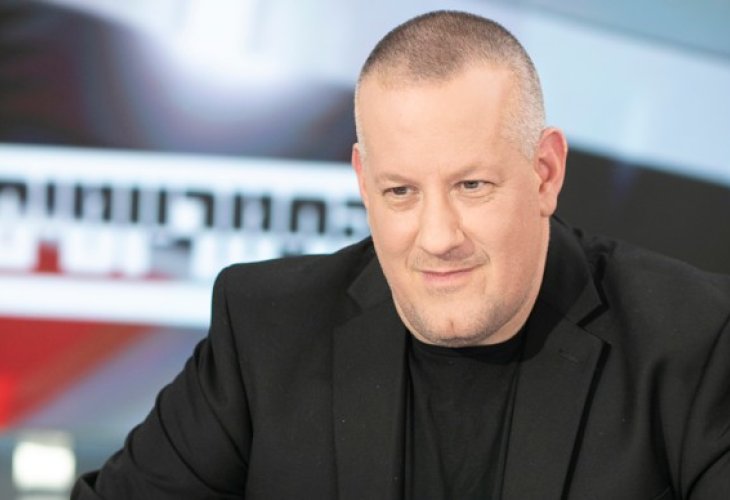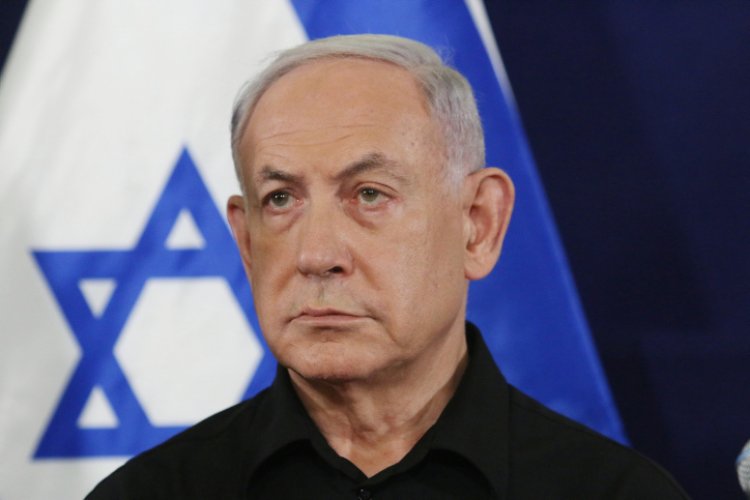"The First Days of the War Were Days of Serious Soul-Searching for Me"
Noam Fathi, one of Israel's prominent right-wing media figures, opens up in a candid interview about how the War of Iron Swords impacted his work.
 Noam Fathi (Photo: Roi Shefernik)
Noam Fathi (Photo: Roi Shefernik)In recent years, Noam Fathi has stood out as one of the influential right-wing media figures in Israel, thanks in part to his regular appearances in various media outlets and his popular activity on social networks. In recent weeks, the discourse around the media's role in Israel's difficult situation has intensified, and it's clear that these issues are deeply important to him.
"The mainstream media in Israel bears immense responsibility for the division that existed among the people before the outbreak of the war," Fathi begins. "For many months, it relentlessly fueled the protest against the government, served as a showcase for the demonstration, all the while legitimizing extremely serious matters such as encouraging refusal and scaring the public. Enormous sums of money were poured into this, and the media clearly took a side and engaged in shaping consciousness."
"One of the places I appear is Channel 14, and the channel's recent success is closely related to this matter. Due to the social media discourse, the public has learned in recent years to particularly focus on two things: the legal field and the media field. Today, people are much more aware of which side many reporters and commentators belong to, and which channels have fair representation and which do not. The program by Ayala Hasson on the corporation – in which I appear – is a good example of a program with diversity and broad representation, but there aren't many programs like this."
"For decades, there was media here that didn't care that there wasn't even minimal representation of the diverse population in Israel, and because of this, slowly, the public understood that it has a lot of power to decide from whom they receive reports and news. Channel 14 was established first and foremost as a response to this absolute neglect in certain channels. When a certain leader didn't suit them, suddenly all the tools became legitimate for them to chase him."
It's hard to miss that you are referring mainly to Netanyahu's trials.
"Indeed, Netanyahu's trials significantly contributed to the success of Channel 14. A huge public felt there was a deliberate and endless persecution, and as the trial progressed, people saw who was dealing with the indictments at the start and who abandoned the matter when everyone saw how baseless these indictments were. Moreover, and not less importantly, there is a very large public in the People of Israel that wants content on tradition, Judaism, and love for the land, and until today they almost didn't have a place to get this. It's an entire and important world of content that was simply neglected and never reached us, the secular. Until today, this field was treated as if only religious people should enjoy it, and we weren't entitled to receive it."
"I may not define myself as a religious person, but I am very proud of my Judaism. Even if I don't exactly follow the Torah's path, I have a lot of respect for it. I grew up in the city of Rehovot, and among all the sectors I knew, the religious appeared to me as 'salt of the earth,' as particularly quality people. I can even say that many times I feel inferior to religious people when I see the spiritual depth they have. Although I come from the secular Tel Aviv advertising world, I seize every opportunity to go to a synagogue, celebrate the holidays, and draw closer to tradition. In addition, I always remember the dedication of the settlers in Judea and Samaria, and the broad context of the chain of generations of the People of Israel. Those who fight against Judaism weaken us as a nation because, without the Torah, heaven forbid, we could easily lose our identity. Therefore, it is so important that we understand who we are and the value of Jerusalem, because that's what gives us the strength to fight and endure."
Like a Car Accident
On regular days, Fathi stands almost unconditionally by Netanyahu's side, but in recent weeks he hasn't spared his criticism of the Prime Minister. Fathi, 49, a single Tel Aviv resident making waves in advertising and media, reveals himself as someone capable of looking candidly at his own camp and pointing out crucial issues that need fixing.
"Of course, Netanyahu also bears responsibility for what happened on this past Simchat Torah," Fathi says. "Netanyahu went along with the Defense Ministry's opinion, they influenced him, and he on them in creating the concept that Hamas is an enemy we can deal with through repeated cycles, which we can work with using various sticks and carrots. In this regard, he failed, and I criticize him for this and for other matters."
"But at the same time, I want to say that the main failure, in my opinion, is military and intelligence. Both in the context of not knowing about the attack before it happened, and in how the army responded on the first day of the attack. I understand those who say Netanyahu should step down for the decisions he made, like the Gilad Shalit deal for instance – which we only now understand the ramifications of – but for the time being, I want the entire State of Israel to stand behind the Prime Minister until victory, and I hope also until a peace agreement with Saudi Arabia is signed. After the war is over, everything should be thoroughly examined without concessions, but right now we shouldn't focus on this."
 Netanyahu (Credit: Dana Kopel, Paul)
Netanyahu (Credit: Dana Kopel, Paul)Do you think journalists on both sides currently respect the rules of the game you talked about?
"Unfortunately not. Several journalists on the left don't hold back on this issue, and lately, I've returned to talking about things that are contested. During normal times, I see myself as someone obligated to voice the national camp and Netanyahu supporters' opinion because I believe their weight in the media landscape is still not at the appropriate volume. Although there's been nice progress on this front, and we created a welcome change in Israeli media with bodies like Israeli Waves and Channel 14 – leading in my opinion ultimately to the victory of 64 seats in the last elections, there's still a long way to go for the desired balance in this regard. Concerning the current matter, since the beginning of the war, I abandoned these things and focused on what unites us. I voiced support for the war effort, and put aside all our disputes about legal reform, state-religion relations, and more."
"This is how I conducted myself for several weeks, and then I started noticing that people on the other side of the political map aren't behaving in this manner. There are media people who continue their pre-war campaigns and engage in ugly politics during the war. When I realized this, I told myself that since we're in an era where every soldier on the front sees and hears what is discussed in the studios – we need to give him strength and power and ensure he sees that the values he holds dear aren't abandoned to one-sided media discourse. It's not that I've returned to pre-war discourse, but there are a few things I've recently returned to discussing. There are issues where it's forbidden to leave the field to those who try to exploit the situation cynically to attack Netanyahu and his supporters."
And within all of this, are you doing personal soul-searching following the outbreak of the war?
"Certainly. The first days of the war were for me days of very serious soul-searching. I always knew how important our unity as a people is, but following what happened, it felt much stronger because I believed the enemy identified this and tried to strike us when we were less united than usual, and I asked myself what was my contribution to the internal rift that deepened over the past year. I argued with people about things that mattered to me, and I was also often angry, thinking that I needed to fight against various individuals – for example, in the matter of judicial reform and the issues of Israel's second vs. first."
"But, and it's a big but, what happened on Simchat Torah truly changed a lot of things. You hear about these horrific things that happened and can't remain indifferent to them. Following what happened, I asked myself if I spoke too harshly in the arguments I had in the media and on social networks. True, many times it was in response to severe things like calling for refusal, but I asked myself if the volume was right, if the words I said and wrote weren't too harsh."
"Regarding how I'll act in the future on this issue, it's currently hard to know. We're still in the thick of it, and the decisions you make sometimes change from day to day. We operate in a changing and very unstable reality, but for now, I'm writing more calmly. The filters I use on my content today are more sensitive to intensities and possible damages, and there are indeed things I'll tone down and issues I won't address. In the early days of the war, I felt like we had a car accident, that I'm full of dust and guilt, and it takes time to recover from such trauma."

